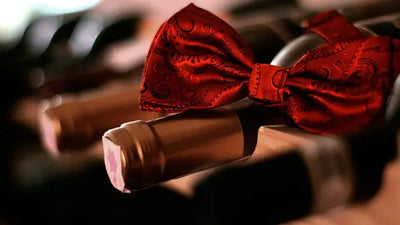Bourbon whiskey holds a special place in the world of spirits, known for its rich flavors and smooth finish. This quintessential American spirit has captured the hearts of whiskey lovers around the globe. Whether you are new to bourbon or a seasoned enthusiast, understanding its varieties, history, and distinct characteristics can deepen your appreciation for this beloved drink.
From its humble beginnings in the American frontier to its current status as a globally recognized and highly sought-after spirit, bourbon offers a unique journey through time and taste. Each bottle tells a story of tradition, craftsmanship, and regional pride. The meticulous process of creating bourbon whiskey involves a blend of art and science, resulting in flavors that range from sweet and caramel-like to bold and spicy.
Exploring bourbon whiskey is not just about drinking; it’s about savoring the nuances that each variety offers. Knowing the differences in production, ingredients, and flavor profiles can enhance your tasting experience. This article will guide you through the fascinating world of bourbon, from its origins to the best ways to enjoy it. Get ready to embark on a flavorful adventure that celebrates one of America’s most cherished spirits.
Defining Whiskey and Its Varieties
Whiskey is a broad category of distilled spirits made from fermented grain mash. The types of grains used include barley, corn, rye, and wheat, which significantly impact the flavor profile of the final product. There are several varieties of whiskey, each with its own distinct characteristics and production methods.
One of the most well-known types is Scotch whiskey, primarily made in Scotland from malted barley. It is typically aged for at least three years in oak barrels, which gives it a smooth and smoky flavor. Bourbon, on the other hand, is an American whiskey made primarily from corn. It is known for its sweet, full-bodied taste and must be aged in new charred oak barrels to develop its rich flavor. Rye whiskey, made from at least 51% rye, offers a spicier and more robust taste compared to bourbon. Then there is Irish whiskey, usually triple-distilled for extra smoothness, often featuring a lighter and fruitier profile.
The History and Origin of Bourbon
Bourbon's history dates back to the late 18th century in what is now the United States. It is believed that settlers in Kentucky, an area known for its fertile soil and plentiful limestone-filtered water, started distilling whiskey using corn, a native grain that grew abundantly there. The name "bourbon" likely comes from Bourbon County, Kentucky, though it is made all over the United States today.
The invention of bourbon is credited to early American frontier pioneers who brought distilling knowledge from Europe. As they adapted their methods to local ingredients, they created a unique spirit that differed from anything previously produced. Over time, bourbon whisky became popular due to its distinctive flavor and the high-quality standards set for production.
Bourbon's rise to fame saw significant growth in the 1800s when it began to be shipped down the Ohio and Mississippi Rivers to New Orleans, where it gained a reputation for quality. The Bottled-in-Bond Act of 1897 helped establish regulatory standards, further solidifying bourbon's standing as a high-quality spirit. Today, bourbon is celebrated not only as a distinctly American product but also as a versatile and flavorful spirit beloved by whiskey aficionados around the world.
Key Differences in Production and Ingredients
The production of bourbon and other types of whiskey involves unique processes and ingredients that set them apart. For bourbon, the primary grain must be corn, making up at least 51% of the grain mash. This gives bourbon its characteristic sweetness. The rest of the mash can include barley, rye, or wheat. After fermentation, the liquid is distilled and aged in new charred oak barrels, which impart the distinct caramel, vanilla, and oak flavors that are signature to bourbon.
In contrast, Scotch whiskey primarily uses malted barley and is aged in used oak barrels, often previously used for bourbon or sherry, giving it a different set of flavor characteristics, ranging from fruity to smoky. Rye whiskey, another variety, must contain at least 51% rye in its mash, resulting in a spicier and more robust flavor profile. The fermentation, distillation, and aging processes also differ slightly, often influenced by regional laws and traditional practices.
Each step, from the choice of grains to the type of barrels used for aging, plays a crucial role in defining the final flavor and quality of the whiskey. Understanding these differences can help enthusiasts appreciate the craftsmanship and nuances that make each type of whiskey unique.
Flavor Profiles and How to Enjoy Them
Bourbon is known for its rich, sweet flavors that often include notes of caramel, vanilla, and oak. Depending on the specific bottle, you might also find hints of spice, fruit, or even smoky undertones. The high corn content gives it a natural sweetness, making it smooth and approachable for both new and seasoned whiskey drinkers. Enjoy bourbon neat, on the rocks, or in classic cocktails like the Old Fashioned or Mint Julep.
Scotch whiskey, with its diverse flavor profiles, offers something for every palate. Single malts can range from light and fruity to rich and peaty, depending on the region where they are produced. A Speyside Scotch often features sweeter, more floral notes, while an Islay Scotch is renowned for its bold, smoky character. To fully appreciate Scotch, try it neat or with a few drops of water to open up its complex flavors.
Rye whiskey stands out with its spicy, robust flavor, often accompanied by notes of pepper, cinnamon, and cloves. The bold taste of rye whiskey makes it a great choice for cocktails like the Manhattan or the Sazerac, where it can hold its own against other strong flavors.
Conclusion
Understanding the world of whiskey, from its varieties to its intricate production processes, enhances our appreciation for this timeless spirit. Each type of whiskey, whether it's bourbon, Scotch, or rye, brings its own unique set of flavors and stories, offering a wide range of tasting experiences. Whether you prefer the sweet richness of bourbon, the smoky complexity of Scotch, or the spicy bite of rye, there's always something new to discover and enjoy.
Exploring the rich history and diverse flavors of whiskey can be a delightful adventure. If you're ready to expand your whiskey collection or find the perfect bottle for your next gathering, visit Quality Liquor Store. Our wide selection of premium spirits ensures you'll find just what you're looking for. Cheers to your next great whiskey experience! Order whisky online!



